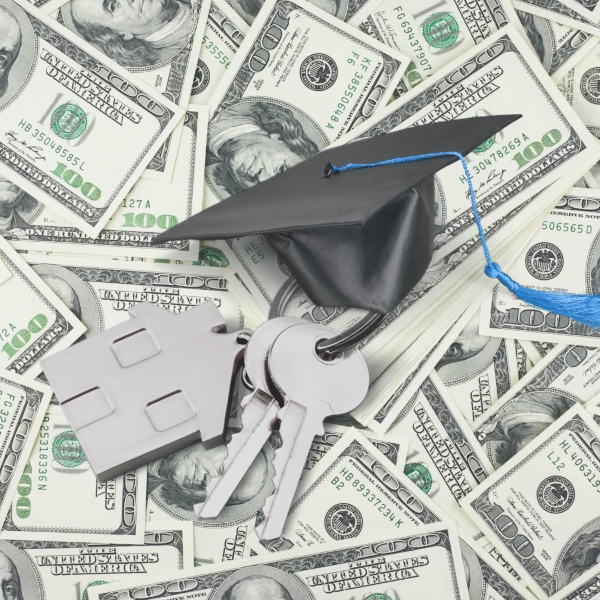How Are Different Mortgage Lenders Handling Student Loans During the Pandemic?
 The coronavirus pandemic has had a massive impact on everyone. This pandemic has led to massive economic issues as well. Given the ongoing crisis as it relates to student loan debt, many students are wondering how the pandemic is going to impact their student loans and how their student loans are going to impact a potential mortgage payment. There are a few points to keep in mind.
The coronavirus pandemic has had a massive impact on everyone. This pandemic has led to massive economic issues as well. Given the ongoing crisis as it relates to student loan debt, many students are wondering how the pandemic is going to impact their student loans and how their student loans are going to impact a potential mortgage payment. There are a few points to keep in mind.
Freddie Mac
In general, loans backed by Freddie Mac are going to use the student loan payment that is marked on the credit report. If this amount is $0 or unknown, then the lender is going to use 0.5 percent of the outstanding loan balance. This should also be reported on the credit report. Then, the lender will provide the borrower with information on possible mortgages.
Fannie Mae
When it comes to loans that are backed by Fannie Mae, students might still be on an income-driven repayment plan. In this case, the monthly payment might be zero and the lender may qualify a potential borrower with this $0 payment. On the other hand, if the loans have been deferred or are in forbearance, then the lender may calculate a payment that is equal to approximately 1 percent of the remaining balance on student loans.
FHA Loans
For individuals going through FHA, the lender is going to run a few calculations. The lender may look at one percent of the remaining balance on the loan, the monthly payment that is reported on the credit report, or the actual documented payment as long as the borrower provides ample evidence. The lender will likely use the greater of these amounts in calculations.
Why Do These Student Loan Payments Matter?
Credit reports are an essential part of the home-buying process. It is critical for everyone to understand what their student loan payments are and how they might impact their credit report. Furthermore, their student loan payments are also going to have an impact on the monthly mortgage payment they can afford. Therefore, it is important for everyone to make sure the information documented on their credit report is accurate when it comes to their student loans.
 During the past few months, people have been spending much more time at home than usual. Therefore, many people are looking for ways to upgrade their homes. A common area of focus is the kitchen.
During the past few months, people have been spending much more time at home than usual. Therefore, many people are looking for ways to upgrade their homes. A common area of focus is the kitchen.